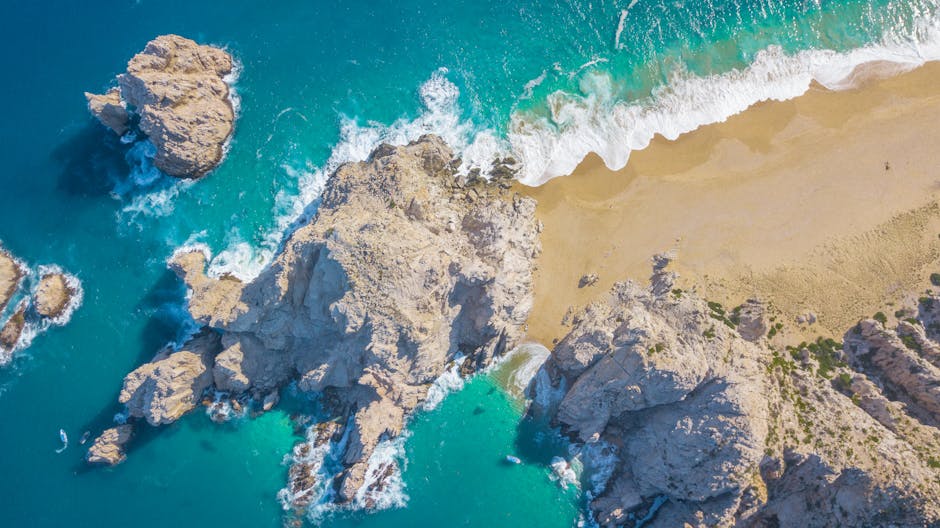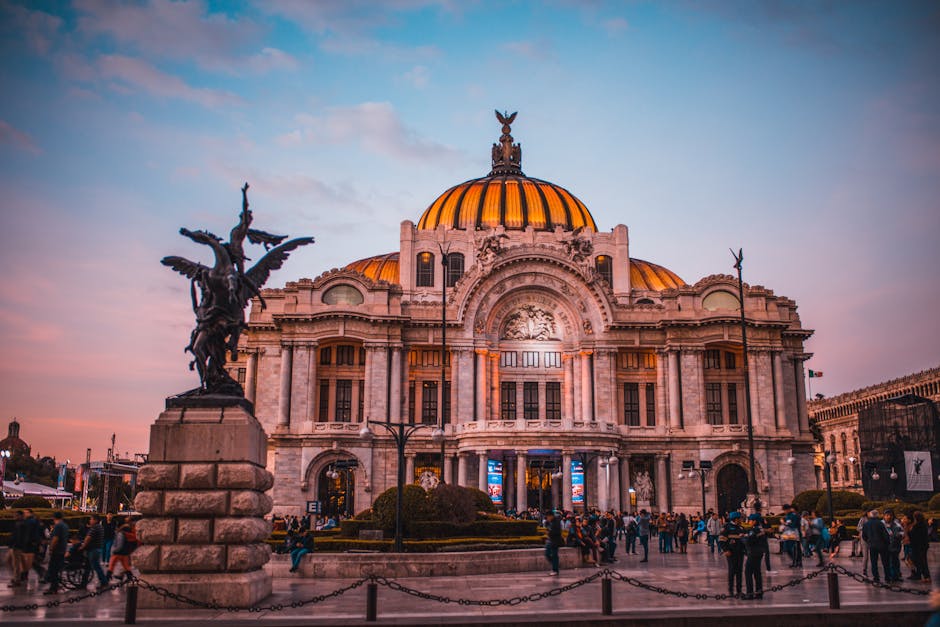Video transcription
I bought Bitcoins around 500 dollar and then l saw it start going up, so I thought I’m a genius at investment.
His name is Ricardo, Salinas, Plego, the founder and chairman of grupo Salinas with a fortune estimated at 12.6 billion dollars.
He is the second richest man in Mexico. Not long ago, Salinas revealed that 10 of his liquid assets are in Bitcoin. That may look a little irresponsible in Latin American conservative business circles. It’s a joke, it’s made of air. It has nothing tangible to back it up.
You know you heard all the arguments, so what is the rationale behind Salinas massive Bitcoin allocation, and why is Latin America a promising market for digital gold? to find out join us in our latest coin telegraph interview.
What’s up everyone, l’m giovanni! Welcome back to another coin! Telegraph show today I have the pleasure to be joined by Ricardo Salinas founder and chairman at grupo Salinas. How are you doing today? Ricardo, I am doing very well.
Hello from Mexico to everybody, so Ricardo. I would like to know what was the first time you heard about Bitcoin well, it was, I was invited to a conference in New York city. I think it was organized by sap. You know the guys that do enterprise software and there were different sessions and one of the sessions.
This guy from grayscale showed up and he gave us the whole talk about Bitcoin and how he’s going to take over, and l thought man this is really interesting. It immediately attracted my attention, l said: well, let’s try it out and see what happens and l put in a small amount. It was trading at the 200 per Bitcoin, it was 2013, I didn’t understand this thing about the wallet and buying it in the exchange and so forth.

It was very complicated. So what I liked about great scale, was they simplified it. Basically you’d put your money in a trust. Then this trust would do the investment they would take care of the whole thing they would take care of the custody they sent you, you know a monthly statement.
Oh, that was a very good arrangement and eventually that that trust turned into gbtc, which is now an exchange-traded product. So I was very happy about it, but I’ll tell you the next part, which is very interesting. This was on the 1st of november. It was 200 and then l looked at it again on the 20th of november and it was already 550.

So I thought I’m a genius at investment, I said I want to add some more so added a lot more and stayed in there for all the way until 2017. We made a very nice trading, profit cool. What is the property of Bitcoin that attracted your attention back then a digital asset that can be traded freely across the world.
I think that’s the most powerful thing you know um, because we have digital assets like fiat, currency, digital money, it’s very difficult to make that digital money or fiat money travel across the world. So if I have some pesos right now – and i wanted to send you – don’t know – a thousand dollars – we’d have to first sell those pesos buy the dollars, get the dollars, buy some euros figure out how to send their euros to Europe, and then you could collect your money over there very difficult, so I’m because we’re in the payment business here in Mexico, we’re really big in that it attracted my attention as a payment vehicle, but then I figured out that no, it was not the payment issue. It’s the store of value that really makes it valuable. So that’s where we are today, I’m a big believer in the store value function.

Why do you think that Bitcoin is more valuable as a store of value than as a means of payment?
Because I think the the the payment application across borders is a fantastic application. I think it still has a lot of merit, but the thing is the volume of that for small payments is not important. I mean cross-border payments with big money is very important, but big money players are not into Bitcoin, so we have to focus on small players, small amounts and – and that’s not a big volume.
Payments is mostly inside the current the country inside the currency system. So, in that respect, the application is, is the application for Bitcoin in that environment is useless?
It doesn’t matter because there’s a very good way for me to transfer pesos from one individual to another inside my country right still, a lot of Bitcoin proponents say that Bitcoin has a great potential in the field of remittances, for example in the US. There are a lot of Mexicans working and sending money every month back to Mexico.
Don’t you think that that’s a great use case for Bitcoin, I think so, and it’s just a question of time. You know make people to adopt it. I mean the people who send money from the US to Mexico are not sophisticated customers. They are mostly manual workers trying to make a living in the United States, and they it takes a lot of effort for them to to win their dollars, and then they don’t have the means, I think, to participate in a Bitcoin transfer scheme, but I mean it’s obviously doable and to the degree that that Bitcoin is easily available and accessible in the US to these people.
They could do that easily and we want to have in our banking system. We want to have a brokerage system attached to the bank, where we can accept and Bitcoins and trade them into pesos and also sell them, we’re working on all that. I just don’t see a big volume of it right now, but I think it’s it’s definitely going to grow so in between 2013 the year where you first bought Bitcoin and today Bitcoin experienced a lot of ups and downs.

Did you ever lose faith in the asset?
Well, let me tell you that’s a very good and interesting story because, obviously, when I bought the coins around 500 and then I started saw it start going up, I mean I was going crazy because I thought that I had to sell them. I mean it was obviously ridiculous right. It so happened that this trust that greyscale had it was impossible to get out of it until a certain date. So through no merit through no merit of mine, I had to sit around until that date came, which was in february of 2017, and then I could take possession of the of the asset and and sell it.
It’s not because I’m a genius, it just happened that I was not able to sell it. I was not able to short it. I was not able to hedge it, so just sat around and I think it’s been a great investment lesson.
Okay, so you said that you gained back control of your Bitcoin investment in february 2017. That year later, we had the Bitcoin price skyrocketing and then it crashed, and then we had the bear market in 2018..
How did your attitude towards Bitcoin change during that bear market?
It was fantastic timing again and also through no merit of mine, but I think the peak was in December around 20 000 and then in fair in in January, when I got hold of the asset, it was 17000. I sold it at 17 000. and got out of it completely. I had a big party, I’m very happy.
It was all my best investments ever, but you know we always return to the scene of the crime right. So when it went down to ten thousand, I thought well now it’s more reasonable and I bought some of the at that time, and then it went down more to six thousand.
I bought some more and and that’s where I am where our average right now is around 9 000 and I’m not selling it. I think I’m going to sit around for another 5 or 10 years, so you recently revealed that 10 of your liquid portfolio is in Bitcoin. That’s a pretty massive position for an asset that is still considered by many investors to be highly risky and volatile.
Can you explain the rationale behind your portfolio construction?
Well, I always view my holdings as core holdings comprised of stocks in my companies equity in my company. This is my main position and that’s not for sale. It’s not for trade, it’s forever, so other than that stock portfolio. In my own equity, I have a good size trading portfolio that I call my liquid acids and I’ve always had those liquid acids mostly invested in in hard acids like gold, silver and precious metal miners.
That’s sort of been my my destination. I don’t trade in the high-tech stocks, the Nasdaq stocks, all the high flyers, the fangs, never touch them. I’m much more of a value investor, and so that’s why i have my liquid assets in the let’s call it hard money portfolio. So, for me, to take 10 of that and put it into Bitcoin is not a big deal. It’s just the position and hopefully it will turn out okay.

Do you plan to increase your Bitcoin position in the near future when it drops?
I will certainly increase my position if it drops so, as reported by bloomberg your bigger listed assets, which is conglomerate group Electra Sab and TV Azteca slumped by 10 and 60 respectively this year.
Did your Bitcoin investments help to make up for some of those losses?
No, no, no, not even close, but you know again, those are my my main uh equity investments.
They happen to be quoted, listed, but they’re not for sale and at any price. So l’m not worried about the valuation of my my companies, I’m not in the stock selling business. I am in the money making business and as long as the companies continue to make money, we’re very happy okay, so my next question would be.
Why do you think that Bitcoin is so popular in Latin America?
I’m not so sure if it’s so popular in Latin America, but I mean obviously, what’s happened in Venezuela and Argentina where fiat money is collapsing and it’s become a scandal.
The way you see those wheelbarrows of of uh Venezuelan cash being thrown in the dumpsters, I mean it really opens your eyes to the problem of fiat cash. You know and most of our countries – I would say every country in Latin America has gone through some horrific inflation periods and it’s hard to forget that l mean there’s a lot of young people out there.
I’m 65 and remember what happened in the 80s. I remember very well and the the destruction of wealth and the transfer of value from the people to the government was was horrible and I think that creates a fertile ground for someone who who’s worried about preserving their capital.
Obviously this is a problem also in other countries, in Africa, for example, and in Lebanon. You know we have Zimbabwe, which is a basket case, and now Lebanese is a terrible thing, but this is what happens to fiat money.
You have been talking about Latin American currencies and also occurrences from developing countries, but what about the dollar?
A lot of our guests say that the dollar might face the same kind of debasement soon. What do you think about these predictions?
Well, the thing with the dollar is that, because it’s a reserve currency, a worldwide reserve currency, it has different kinds of rules, I mean, but the way they manage their central bank is like a third world banana republic. You know when internal credit of the federal reserve. More than doubles year over year I mean this is outrageous, it’s only because they’re Americans and they can get away with it any other country would have a massive depreciation.

However, having said that, what is the competition?
Europe is doing the same thing and I’m not sure about Japan, I’m not sure about the numbers, but Japan has also increased the central bank balance sheet in a horrific amount.
So what we’re seeing is that all the fiat, the major fiat currencies, are being debased as we speak so having the dollar collapse against the other currencies doesn’t make any sense. What’s going to happen is happening.
Is that asset prices go up in terms of dollars and that’s why we see the booming stock market in the United States?
I’m pretty curious to know what is the most common perception of Bitcoin among Latin American entrepreneurs. I think there’s not really a perception very, very few people know about this and you know it’s the usual. If you get into a discussion about it, people say well, it’s it’s a it’s a joke! There’s nothing behind it! It’s made of air! It has nothing tangible to back it up. You know, you heard all the arguments. People are the same across the world, they all say the same thing right. So in this kind of conversation with your peers, you are always the outsider right. Oh, yes, I’m very much used to being an outsider okay.
I’m curious to know what is your counter argument that you usually use in these conversations with your peers to defend Bitcoin?
I think the main confusion is people come up with this idea that, oh it’s not money so well, we have to go to definitions of what is money. You know money as a unit of account as a means of exchange as a store of value, and but anybody who studies monetary history knows that money has been evolving across time.
I mean that’s why I mentioned the book of the Bitcoin standard by this Lebanese gentleman cefedine and he has a really excellent chapter on monetary history and he takes us through how people used to have. You know big rocks as as proof of wealth, and then these rocks were traded and then how you go to copper and iron. People need to exchange stuff right and what they use to exchange is the most tradeable commodity, that’s within their reach, and that’s why gold and silver became very good instruments for trade they’re commodities.
They have some use and they’re highly desirable and they’re easy to exchange. So I mean, if you just consider that logic and the way that most of the world has now gone to an all digital money, bits and bytes in the ether i mean, what’s so bad about Bitcoin, it’s bits and bytes in the ether, but the big thing is it cannot be debased and it cannot be confiscated that easily it can be confiscated, but not so easily right.
So there’s got a lot of things going for it as a means of exchange. It’s actually a pretty good commodity to be used as a means of exchange. If you want to call it money or not, it’s totally personal doesn’t matter all right now, switching topic. According to a report published by intelligence, firm insights, the majority of the world’s illicit crypto funds ends up on Latin American crypto exchanges, and that is because, apparently, Latin American exchanges have very lacks kyc and aml procedures.

Don’t you think that this trend could prevent crypto from establishing itself as a legit asset in Latin America?
That has nothing to do with know your customer in in anti-money laundering much less with terrorism financing. If this is just you know, the established governments don’t like Bitcoin, because it’s a competition to their fiat currency and they don’t like it and they want to get get them down. So that’s what’s happening and I think in terms of Latin America, I don’t think that there’s a lot of Bitcoin volume.
As far as I know, in Mexico, or in Venezuela or Argentina, I mean there’s got to be much less than what is traded in the us and europe. If you talk about volumes, so no I’m not worried about that. I just think that there’s a lot of hypocrisy by the establishment about this new currency being used for nefarious purposes, that’s just propaganda to try and derail the product.
Okay, so you don’t think that this illicit crypto activity could prevent Bitcoin to become a legit asset?
To become accepted by large investors and institutions in Latin America, I think there’s a big difference between being legal and being legitimate. I mean the asset is legitimate period. End of story, there’s no question about it. It’s an asset that you can buy. You can sell with the willing third party there’s no question about being legitimate.
Now any government waiving their magic wand of legislation can turn it into an illegal asset. And America again is a good example. I mean gold was a very legal asset until 1931, when it became illegal and criminal to hold goal. Judge the stroke of a pen.
Roosevelt did that so will it be? Will it be legal? I don’t know, will some governments try to make it illegal? Probably are we so concerned about that?
No, it’s just the way things are awesome, thanks a lot Ricardo that was a great conversation. Well, thank you Giovanni and hopefully, we’ll have a very nice Bitcoin year now that it goes over 20 000 any day. Now that was Ricardo, Salinas, founder and chairman at Group Salinas, I’m Giovanni your host, if you enjoyed the interview, don’t forget to like the video and subscribe to our channel.


